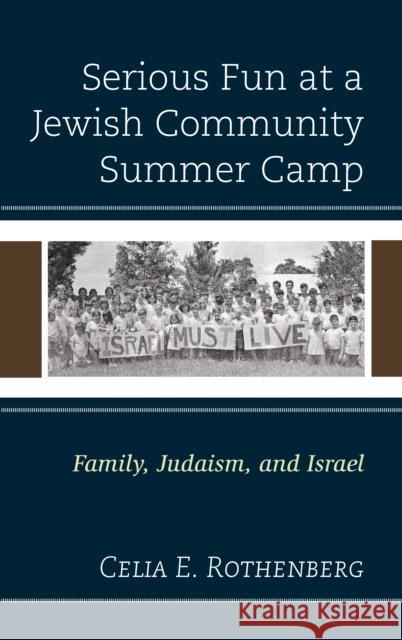Serious Fun at a Jewish Community Summer Camp: Family, Judaism, and Israel » książka
Serious Fun at a Jewish Community Summer Camp: Family, Judaism, and Israel
ISBN-13: 9781498540773 / Angielski / Twarda / 2016 / 144 str.
Unique in the literature on Jewish camping, this book provides an in-depth study of a community-based, residential summer camp that serves Jewish children from primarily rural areas. Focused on Camp Ben Frankel (CBF), established in 1950 in southern Illinois, this book focuses on how a pluralist Jewish camp constructs meaningful experiences of Jewish "family" and Judaism for campers--and teaches them about Israel. Inspired by models of the earliest camps established for Jewish children in urban areas, CBF's founders worked to create a camp that would appeal to the rural, often isolated Jewish families in its catchment area. Although seemingly on the periphery of American Jewish life, CBF staff and campers are revealed to be deeply entwined with national developments in Jewish culture and practice and, indeed, contributors to shaping them. This research highlights the importance of campers' experiences of traditional elements of the Jewish "family" (an experience increasingly limited to time at camp), as well as the overarching importance of song. Over the years, Judaism becomes constructed as fun, welcoming, and easy for campers, while Israel is presented in ways that are meant to be appropriate for a community camp. In the camp's earliest decades, Israel was framed by "traditional" Zionist discourse; later, as community priorities shifted, the cause of Russian Jews was the focus. Most recently, as Israeli politics have been increasingly viewed as potentially divisive, the camp has adopted an "Israel-lite" approach, focusing on Israel as the Biblical homeland of the Jewish people and a place home to Jews who are similar to American Jews. In sum, this study sheds light on how a small, rural, community camp contributes in significant ways to our understanding of American Jews, their Judaism, and their Zionism.











